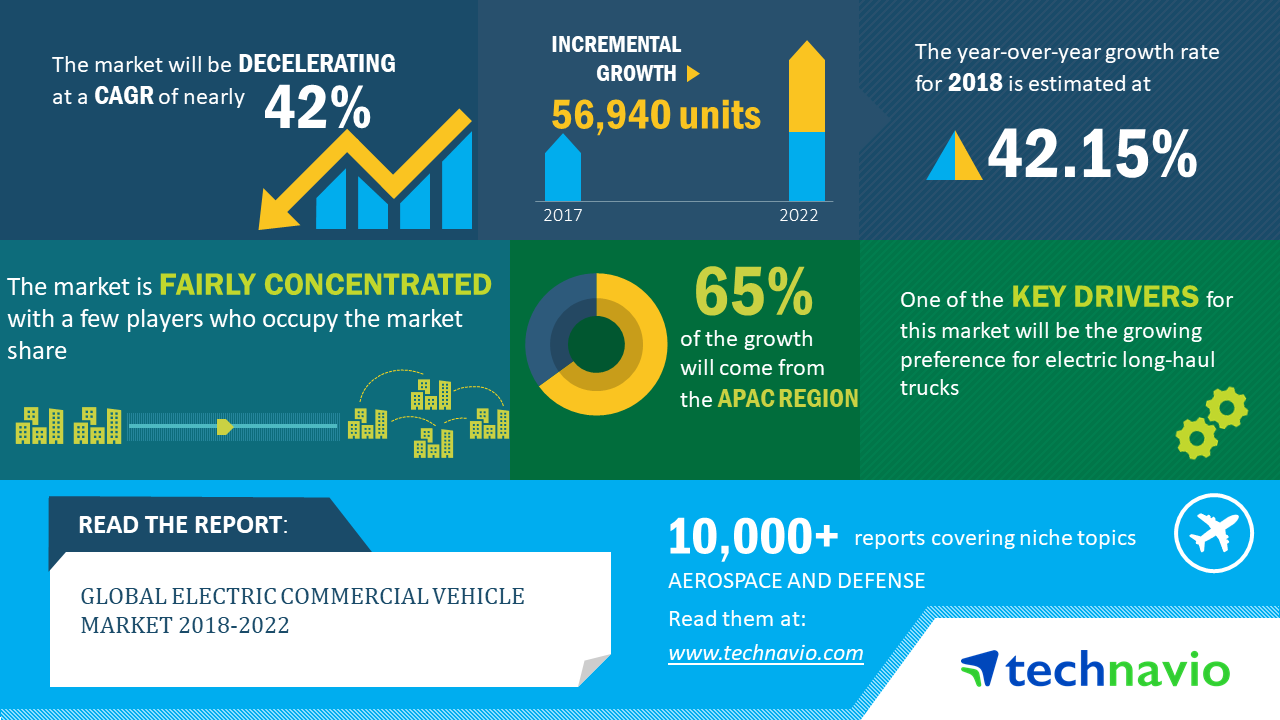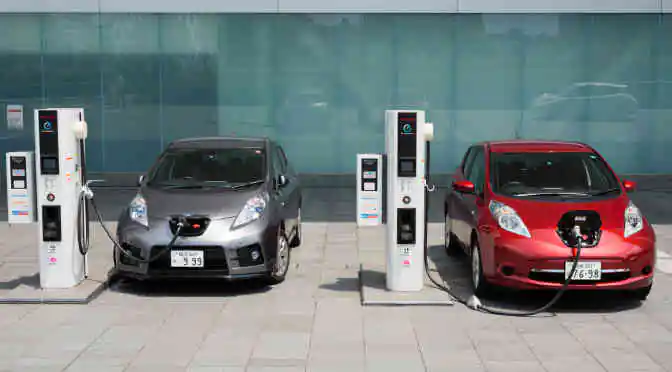Electric vehicles (EV) have gone from being a novelty item to what seems to be the answer to a number of modern automotive problems in record time. They are being used in a growing number of applications and becoming increasingly popular as commercial vehicles. Technavio expects the market for commercial electric vehicles to increase by over 55,000 units by 2022, to say nothing of consumer vehicles.
Below are some key insights about this market from our industry experts.

As electric vehicles are becoming more accessible and widespread, we’ve identified some of the major vendors leading the market.
1) Tesla, Inc.
It’s no surprise that Tesla is at the top, as this American automaker’s popularization of electricity as a propulsion medium has bought positive responses and lots of attention to this dynamic segment. Led by the charismatic entrepreneur Elon Musk, Tesla has solved some of the lingering problems in the mass adoption of electric vehicles on the back of cutting edge innovation and sheer persistence. This includes improving the range of a fully charged electric car (solving the dreaded ‘range anxiety’) and setting up high speed electric car charging points at regular intervals across America. Tesla is definitely the company to beat in this segment.
Popular models: Tesla Roadster, Model S, Model 3
Recent developments : Unveiled the sleek Tesla Semi Truck that is looking to revolutionize the global trucking industry. Also launched at the November 16th event was the 2017 iteration of the ever-popular Roadster.
Future Strategies- Rapid improvement in the autonomous driving capabilities of electric cars, improvement in the already impressive range (best number currently is Model S at 265 miles), and jumping aboard other automotive disciplines where electricity can be used as a viable means of propulsion.
2) Nissan Motor Corporation
The world’s best selling electric vehicle is the Nissan Leaf, a peppy little hatchback that has already sold over 300,000 units since its debut. Before owning a Tesla was ‘cool’, the Leaf offered the best bang for your buck with its capacity to travel in excess of 100 miles on a single charge. Aside from this gamechanger, Nissan also manufactures the Nuvu, Esflow and e-NV200 utility van, all of which are popular electric vehicles that are widely accepted among buyers, predominantly in the U.S., Japan and Europe.
Recent exploits- When it comes to electric vehicles in 2017, most buyers look at Tesla. The Leaf is still the most abundant electric car out there, but Tesla is catching up with its models that churn up double the range of the Leaf. In order to counter this challenge, Nissan recently launched the 2017 iteration of the Leaf. With snazzy styling, city traffic friendliness , better range and availability at the old Leaf’s price point, the company hopes to up its electric game significantly with this reboot.
Do electric vehicles stand a chance?
It’s the end of 2017 and the age of the ecologically conscious car buyer has just begun. The demand for electric vehicles is slowly spiking, as exhibited in this insightful market research report, and amongst the OEMs, this shift in preferences has resulted in a renewed interest in the concept of electric vehicles. Interestingly, the first production electric car was let loose on the streets of London in 1884. The concept of electric vehicles has been around for a while; however, it has only become popular very recently. And, with Tesla churning out the sleekest machines, the assumption that electric vehicles cannot match upto their gasoline fed counterparts in terms of performance and appeal is gone.
3) BMW
One of the marquee names when it comes to luxury automobiles, Germany’s BMW is turning heads with its innovative line of electric cars classified under ‘Project i’. Starting with the ‘i3’ hatchback, a five door urban all electric car, the company moved onto the ‘i8’- the plug-in hybrid sports car. Both cars have managed to attract a sizable fanbase , proving to BMW that the electric route is a lucrative option indeed. Further, the aesthetics of BMW cars set them apart from the crowd- a strong USP in this German carmaker’s case.
Recent developments: In the world of electric cars, range, or the vehicle’s mileage through a single charge, is everything. Taking this into consideration, BMW recently announced the establishment of a $240 million facility that will help the company improve its electric car range to a respectable 430 miles. While BMW already has the lead in styling and brand value, the improved range will help its electric cars emerge as a more practical option.
4) Kia Motors
South Korea’s second largest automobile manufacturer’s USP in terms of its electric car portfolio is practical affordability. The Kia Soul EV is an enchanting crossover that is seen as a practical city rider with an easy 100+ mile range under the hood. The company might be playing second fiddle to giants such as Toyota and Honda, but with pricing and reliability proving to be big factors leading up to the buying decision, Kia is able to make an instant connection with the average EV buyer.
Future Strategies- India is slated to be a huge market for electric vehicles in the years to come, and Kia is already playing the role of a pioneer. The company is holding nothing back in terms of its business aspirations in the country, and is already putting in place a strong local infrastructure.
5) Chevrolet
Chevy is the quintessential American automobile company that is looking to reinvent itself to suit the requirements of the next generation of car buyers. The company’s foray into the electric vehicle territory, with the Bolt EV and Spark EV, has been met with decisive success. The fact that these cars churn up a mileage of 220 miles per charge, at a price point that is far lower than other long-range vehicles, makes Chevy an earnest contender with a solid chance to dominate in the years to come.
Recent developments: In the U.S., the Bolt EV outsold Tesla cars for the first time in October 2017.
Is this the start of the EV revolution?
Most definitely, yes!
2017 has proven to be the year when electric vehicles stepped out of the shadow of their gas guzzling counterparts and commanded a following of their own. The evolution of this demand is set to continue through 2018 and beyond, with automakers taking note of the emerging trends and jumping into the fray themselves. There has never been a better time to be an OEM specializing in electric vehicles.



